Call for Posters: Arctic Futures 2050 Conference
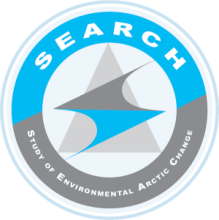
The Arctic Futures 2050 Conference Organizing Committee invites abstracts for posters; poster sessions will be held during each day of the conference as an integral part of the agenda and expansion of the plenary sessions. Poster abstracts are due 1 May 2019.
Call for Posters: Arctic Futures 2050 Conference
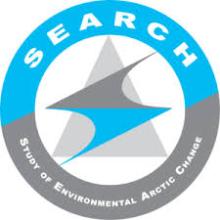
The Arctic Futures 2050 Conference—convened by the Study of Environmental Arctic Change (SEARCH)—will be an international conference designed to enhance collaboration between Arctic scientists from many disciplines, diverse Indigenous knowledge holders, and policy makers from all levels of government. The conference will be held 4-6 September 2019 in Washington, D.C. The Organizing Committee invites abstracts for posters; poster sessions will be held during each day of the conference as an integral part of the agenda and expansion of the plenary sessions. Poster abstracts are due 20 May 2019.
Arctic Research Seminar Series with Donna Hauser
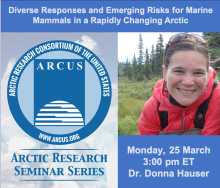
ARCUS invites registration for our next Arctic Research Seminar featuring Donna Hauser (International Arctic Research Center, University of Alaska Fairbanks). This seminar, titled “Diverse Responses and Emerging Risks for Marine Mammals in a Rapidly Changing Arctic,” will be held Monday, 25 March 2019 from 11:00am-12:00pm AKDT in room 501 of the Akasofu Building (2160 Koyukuk Drive, Fairbanks, Alaska 99775) on the University of Alaska Fairbanks campus. A live webinar is also available to those unable to attend in person.
The Expanding Footprint of Rapid Arctic Change
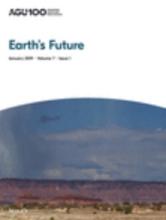
In an Earth’s Future commentary, a broad array of natural and social scientists describe the consequences of a rapidly warming Arctic on sea level, coastal erosion, extreme weather, and infrastructure. Twila Moon (National Snow and Ice Data Center) and her co-authors point out the impacts on economies and cultures in the Arctic and beyond. “This important paper vividly illustrates the power of multi-disciplinary synthesis presented in clear language,” said SEARCH Executive Director, Brendan Kelly.
Witness Community Highlights

The February issue of Witness Community Highlights is now available online. This issue includes two articles: “2018 Arctic Observing Summit News,” summarizing recent efforts to develop a draft scope of work that addresses Sustaining Arctic Observing Network objectives; and “Revised Principles for Conducting Research in the Arctic: 21st Century Guidelines to Ethical Research,” summarizing guidelines for researchers to engage with people and conduct research in the Arctic.
2018 SIO Post-Season Report - Review Draft Available

The Sea Ice Prediction Network (SIPN2) Project Team invites sea ice experts and members of the SIPN network to provide comments on the preliminary draft of the 2018 Sea Ice Outlook (SIO) full post-season report. This draft report, a product of the SIPN2 Project Team led by Uma Bhatt, includes the main post-season analysis and discussion points. A PDF of the draft report is available online as well as instructions on how to submit comments.
AOS Working Group on Arctic Observing Optimization & Implementation Seeks Input

The Arctic Observing Summit (AOS) working group on Optimization and Implementation is inviting community input and participation in a new task team working to develop a roadmap for future Arctic observational capacities. Learn more about the working group's current activities in this report out from their December open meeting.
ARCUS at the Alaska Forum on the Environment
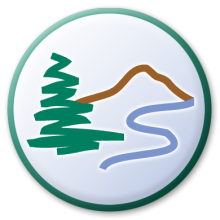
ARCUS staff are attending the Alaska Forum on the Environment this week (Feb. 11-15) in Anchorage, Alaska and have an exhibition booth on the 2nd floor, outside of Meeting Room #3. If you are attending the meeting, stop by and say hi!
ARTIC FUTURES 2050 CONFERENCE

In 2019, SEARCH and partners will convene Arctic scientists from all disciplines, indigenous knowledge holders, and decision makers to share current understanding and identify future directions for research needed to inform Arctic policy. The conference also is intended to foster more effective and iterative collaborations among Arctic scientists and decision makers.
DATES: 4-6 September 2019
VENUE: National Academy of Sciences,
2101 Constitution Avenue, NW
Washington, DC
Watch for updates at https://www.searcharcticscience.org/arctic-2050
For more information, contact:
Brendan P. Kelly
Executive Director
Study of Environmental Arctic Change
bpkelly [at] alaska.edu
[video: ]
SEARCH contributes to a new paper exploring links between Greenland ice melt and build infrastructure
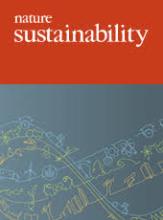
In a paper published on 11 February 2019, Mette Bendixen, Irina Overeem, and their colleagues advocate that Greenland¹s melting ice sheet provides a tremendous source of water and sediment transported to the coast (Bendixen et al. 2019). At the coast, sediments settle out and build out deltas accumulating huge volumes of sand. Previously, the authors showed how massive these fluxes of sediment are, about 9% of the world¹s river sediment is produced in Greenland (Bendixen et al. 2017, Overeem et al. 2017). They project sediment pile-up will only get larger with continuing climate change and ice sheet melt. At the same time, sand is increasingly valued as a scarce resource worldwide. Demand for sand has grown exponentially over the last century it is a key component of urbanization, infrastructure expansion and coastal protection. Bendixen and her coauthors present an analysis that explores whether Greenland as a society can sustainably mine sand and how sand mining could contribute to Greenland¹s economy and independence.
"It is as if these researchers presaged Navigating the New Arctic, one of NSF's 10 Big Ideas," commented Brendan Kelly, SEARCH Executive Director. "Before Navigating the New Arctic was established, Bendixen and coauthors already were investigating connections between the climate change, ice melt, and business opportunities."
Bendixen, M., Overeem, I., Rosing, M. T., Bjørk, A. A., Kjær, K. H., Kroon, A., Zeitz, G., and Iversen, L. L. (2019). Promises and perils of sand exploitation in Greenland. Nature Sustainability, 2(2), 98–104. https://doi.org/10.1038/s41893-018-0218-6
Bendixen, M., Lonsman-Iversen, L., Bjork, A., Elberling, B., Westergaard-Nielsen, A., Overeem, I., Barnhart, K, Khan, S., Box, J., Abermann, J., Langley, K., Kroon, A., 2017. Delta Progradation in Greenland driven by glacial mass loss. Nature 55, 101104.
Overeem, I., Hudson, B., Syvitski, J., Mikkelsen A., Hasholt, B., van der Broeke, M., Noel, B., Morlighem, M., 2017. Substantial export of suspended sediment to the global oceans from glacial erosion in Greenland. Nature Geoscience 10, 85986
Witness Community Highlights

The January 2019 issue of Witness Community Highlights is now available online. This issue includes an article summarizing the Arctic Report Card 2018 that was released on 11 December 2018. The collective content of the report makes clear that the continued warming of the Arctic atmosphere and ocean are driving broad change in the environmental system in predicted, and also unexpected, ways.
PolarTREC Live from Antarctica
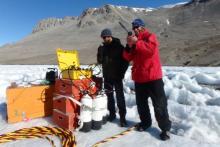
Join ARCUS and PolarTREC for a live event from McMurdo Station in Antarctica. The event will be held on Wednesday, 6 February 2019 with teacher Kevin Dickerson and the 2019 Dry Valleys Ecosystem Study Team. Read more about their research and what Kevin is learning here. The one hour event starts at 11:30am Alaska Savings Time (12:30pm PST, 1:30pm MST, 2:30pm CST, 3:30pm EST). We hope you can join us!
Arctic Research Planning Night at the Alaska Marine Science Symposium
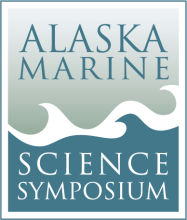
ARCUS will be hosting an informational table at Fairweather Science’s annual Arctic Research Planning Night on Wednesday, 30 January from 7:00 p.m. to 9:00 p.m. at the Quarterdeck at Hotel Captain Cook in Anchorage, Alaska. This event is held to facilitate collaboration, networking, and knowledge sharing among Arctic researchers.
Attendees are invited to send in advance, or bring a thumb drive, a few slides that outline their research plans for 2019 and beyond. Include research platform (vessel, aircraft, etc.), location of study, duration, objectives, types of data to be collected, available space, and length of contract. Slides can be sent to sheyna.wisdom [at] fairweather.com.
Stop by and enjoy some great conversation, networking, and delicious food!
PolarTREC Live with Educator Allyson Woodard
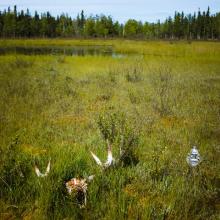
Join PolarTREC for a live event from the Oregon Museum of Science and Industry in Portland, Oregon with educator Allyson Woodard on Thursday, 28 February 2019 at 11am AKST (12pm PST, 1pm MST, 2pm CST, 3pm EST). Read more about their research and what Allyson observed here. Register today for this free event!
ARCUS Staff Member Named AAAS Community Engagement Fellow
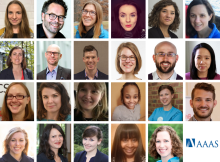
ARCUS Project Manager, Brit Myers, is one of twenty-three research community engagement managers who have been named an American Association for the Advancement of Science (AAAS) Community Engagement Fellow for 2019. The goal of the fellowship program, administered by the recently established AAAS Center for Scientific Collaboration and Community Engagement, is to raise the profile of scientific community engagement as a field.
8th Annual Meeting of the Permafrost Carbon Network
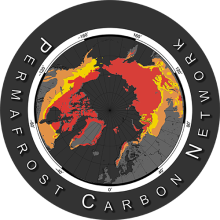
The 8th annual meeting of the Permafrost Carbon Network took place in Washington D.C. on Sunday, 9 December 2018. The event attracted over 120 participants and provided an important opportunity for the research community to share project updates and discuss new directions for ongoing research synthesis efforts.
Witness Community Highlights

The December 2018 issue of Witness Community Highlights is now available online. This issue includes two articles: “NSF’s Navigating the New Arctic (NNA)” presents an overview of the solicitation that embodies the Foundation's forward-looking response to the profound challenges associated with the Arctic; “Arctic Science Ministerials: High Level Political and Policy Support for Grass Roots Level International Scientific Collaboration” provides a perspective of how the first and second Arctic Science Ministerial events developed and why international cooperation is essential to address challenges that result from a warming Arctic.
Happy Holidays
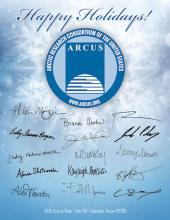
Happy Holidays from all of us at ARCUS & we look forward to doing great work in the new year!
PolarConnect Live from McMurdo Station, Antarctica
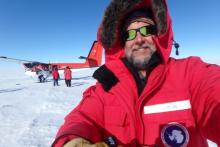
Connect to the Antarctic! Join us for an upcoming PolarConnect event with Mike Penn and the Antarctic Automatic Weather Station Team on Monday, 17 December 2018 at 8:00am AKST (9:00am PST, 10:00am MST, 11:00am CST, 12:00pm EST). This event will be broadcast live from South Pole Station. Register today!
Arctic Research Funders Meet & Greet Neworking Event in Washington D.C.
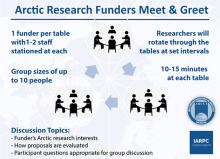
ARCUS is pleased to announce a special networking activity for Arctic researchers to meet with Arctic research funding agency staff on Friday, 14 December 2018. The event will take place 8:30am to 10:00am ET in Washington D.C. at the Cambria Hotel (899 O St NW, Room: Duke Ellington Room 1). There is no cost to participate and you do not need to be registered for the AGU Fall Meeting to attend. However, space is limited so please sign-up early!
SIPN2 Meeting at AGU Fall Meeting
SIPN2 will convene an open meeting on Tuesday, 11 December from 12:30-1:30 p.m. in Washington, D.C., in conjunction with the AGU Fall Meeting, to promote knowledge exchange and collaboration among members of sea ice research community. A brief overview of the 2018 Arctic sea ice/Sea Ice Outlook season will also be provided. All those interested in Arctic sea ice prediction are welcome to attend!
Empowering Arctic Indigenous Scholars and Making Connections – Call for Applicants
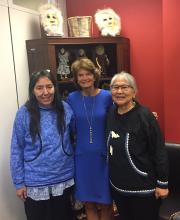
ARCUS and the Inuit Circumpolar Council Alaska invite applications from and/or nominations of Arctic Indigenous scholars to travel to Washington D.C. and meet with officials at U.S. government agencies, non-governmental organizations, and other groups. Four selected scholars will be able to share their interests via a seminar and meetings, learn of available resources, build toward collaborative relationships, and provide on-the-ground perspectives to key decision-makers. For the purposes of this opportunity, scholars are defined as an expert within their own knowledge system. This includes hunters, fishers, and gatherers; those that process and store food; health aides; and others. It includes youth, elders, and adults. Education may come from the land, the water, or a classroom. To apply for the 2019 opportunity, or to nominate a scholar, please visit our webpage for instructions. Applications are due by 5:00pm AKST, Thursday, 10 January 2019. Letters of nomination are due by Friday, 28 December 2018.
ARCUS Annual Meeting & Arctic Research Community Reception
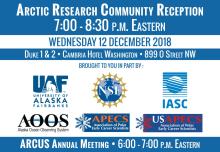
Please join us Wednesday, 12 December from 6:00-7:00pm EST for the 2018 ARCUS Annual Meeting at the Cambria Hotel (899 O St NW, Rooms: Duke Ellington 1 & 2) in Washington, D.C. The meeting will focus on ARCUS member priorities for Arctic research, education, and outreach and is open to anyone interested in Arctic research. All attendees are also invited to join us for a special Arctic Research Community Reception taking place in the same location from 7:00-8:30pm EST. An ARCUS member affiliation is not required to attend and there is no cost to participate. However, advance registration is encouraged for both events.
SEARCH Town Hall at AGU Fall Meeting
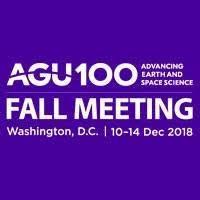
The Study of Environmental Arctic Change (SEARCH) will be hosting a town hall event on Friday, 14 December from 12:30 - 1:30 p.m. EST at the Marriott Marquis, Independence D in Washington D.C. in conjunction with the American Geophysical Union (AGU) Fall Meeting.
Recognizing that unprecedented environmental change challenges the pace of research, the SEARCH Town Hall will explore with interested scientists where the program has provided benefit and—more importantly—where it could do so in the future. After a brief overview of SEARCH’s recent efforts (focused on sea ice, land ice, and permafrost), contributing members of SEARCH will lead a discussion considering: How can the Arctic research community best advance actionable and discovery science? What could or should a multi-disciplinary effort accomplish that otherwise would not get done? How might our community use the upcoming (September 2019) Arctic Futures 2050 conference to advance science and serve pressing policy needs?
For questions, contact:
Brendan Kelly
Email: bpkelly [at] alaska.edu
Phone: 907-209-6531
NSF Arctic Sciences Section Town Hall at the AGU Fall Meeting

The Arctic Sciences Section of the Office of Polar Programs (OPP) at the National Science Foundation (NSF) will be hosting a Town Hall during the American Geophysical Union 2018 Fall Meeting. The Town Hall will convene 11:00am - 12:00pm EST on Monday, 10 December 2018 at the Cambria Hotel Washington D.C. Convention Center hotel, Duke Ellington Room 1 in Washington D.C.
During this Town Hall, Program Directors from NSF’s OPP Arctic Sciences Section will provide an overview of recent and upcoming news of interest to the research community.
Topics will likely include:
- Staffing changes in the Arctic Section and introduction of new program officers,
- Recent program activities and updates from Research Support and Logistics
- Upcoming opportunities at NSF of interest to Arctic researchers, and
- An overview of proposal review without deadlines.
Organizers anticipate giving a brief presentation, with the majority of the time devoted to questions and discussion.
For questions, contact:
Cynthia Suchman
Email: csuchman [at] nsf.gov
